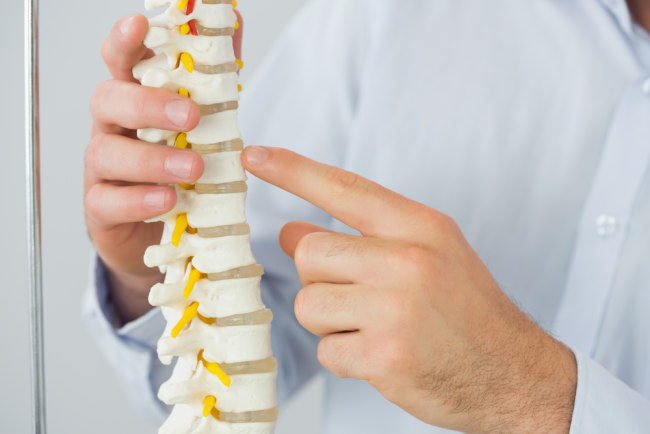Letrozole is a drug used to treat breast cancer in postmenopausal women.In addition, this drug can also be used in breast cancer patients who have undergone radiation therapy or surgical removal of cancerous tissue.
Latrozole belongs to the class drug nonsteroidal aromatase inhibitors which works by reducing the amount of estrogen produced by the body, so that it can slow or stop the growth of breast cancer cells.

Letrozole can be used to prevent the risk of developing breast cancer in women who are at high risk. In addition, letrozole can also be used in the treatment of polycystic ovary syndrome or polycystic ovary syndrome polycystic ovarian syndrome (PCOS).
Letrozole trademark:Aromara, Femaplex, Femara, Lebrest, Lentronat, Lemara, Lezra, Trozet
What is Letrozole
| group | Prescription drugs |
| Category | Antiestrogen |
| Benefit | Treating breast cancer in postmenopausal women |
| Used by | Mature |
| Letrozole for pregnant and lactating women | Category X:Studies in experimental animals and humans have demonstrated fetal abnormalities or a risk to the fetus. Drugs in this category are contraindicated in women who are or may become pregnant. It is not known whether letrozole passes into breast milk or not. If you are breastfeeding, do not use this medicine without consulting your doctor first. |
| Drug form | Tablet |
Precautions Before Taking Letrozole
Letrozole is only taken with a doctor's prescription. Before taking this drug, you need to pay attention to the following:
- Tell your doctor about any allergies you have. Letrozole should not be used by someone who is allergic to this drug.
- Tell your doctor if you have or are currently suffering from liver disease, kidney disease, hypertension, heart disease, osteoporosis, osteopenia, stroke, high cholesterol, or have not been through menopause.
- Do not drive a vehicle or do activities that require alertness after taking letrozole, as this medicine can cause dizziness and drowsiness.
- Tell your doctor that you are taking letrozole if you plan to have certain medical procedures, such as surgery or dental surgery.
- Tell your doctor if you are pregnant, breastfeeding, or planning a pregnancy. Letrozole should not be used by women who are pregnant. Consult the type of effective contraception with your doctor to prevent pregnancy.
- Tell your doctor if you are taking any medications, supplements, or herbal products.
- See your doctor immediately if you have an allergic drug reaction, serious side effect, or overdose after taking letrozole.
Dosage and Instructions for Use Letrozole
The doctor will determine the dose and duration of treatment with letrozole based on the patient's age, condition, and body response to the drug.
To treat and reduce the risk of breast cancer after menopause, the dose is 2.5 mg, 1 time a day. Treatment can be continued for up to 3–5 years.
To treat infertility in women with polycystic ovary syndrome or polycystic ovarian syndrome (PCOS), the dose is 2.5 mg, once a day for 5 days. Treatment is usually started on the 3rd or 5th day of the menstrual cycle.
How to Take Letrozole Correctly
Follow the doctor's advice and read the information listed on the drug packaging label before taking letrozole. Do not reduce or increase the dose without consulting your doctor first.
Letrozole can be taken before or after meals. Swallow the tablet whole with the help of a glass of water. Do not crush or chew the tablet.
If you forget to take letrozole, it is advisable to take it immediately if the gap between the next consumption schedule is not too close. If it is close, ignore it and do not double the dose.
While on treatment with letrozole, you may be asked to have regular medical examinations and bone mineral density tests or bone mineral densitometry (BMD), periodically. Make sure to do the control according to the schedule given by the doctor.
Store letrozole in a dry, closed place, and away from direct sunlight. Keep medicine out of reach of children.
Letrozole Interaction with Other Drugs
The following are drug-drug interactions that may occur if letrozole is used together with other drugs:
- Decreased effectiveness of letrozole when used with tamoxifen or other estrogen-derived drugs, such as estradiol
- Decreased letrozole levels when used with rifampicin
Letrozole Side Effects and Dangers
Some of the side effects that can occur after taking letrozole are:
- Sensation of heat (hot flashes)
- Nauseous
- Headache, dizziness, or drowsiness
- Excessive sweating
- Joint, bone, or muscle pain
- Hair loss
- Weight gain
- Hard to sleep
- Increased cholesterol levels
Consult a doctor if the side effects above do not subside immediately or are actually getting worse. Immediately see a doctor if you experience an allergic drug reaction or more serious side effects, such as:
- Easy to break bones
- Jaundice, persistent nausea and vomiting, dark urine, severe fatigue
- Swelling in the hands or feet
- Blurred vision
- Mood and mental disorders, including depression
- Chest pain, weakness on one side, sudden and severe headache, blurred vision
- Vaginal bleeding









